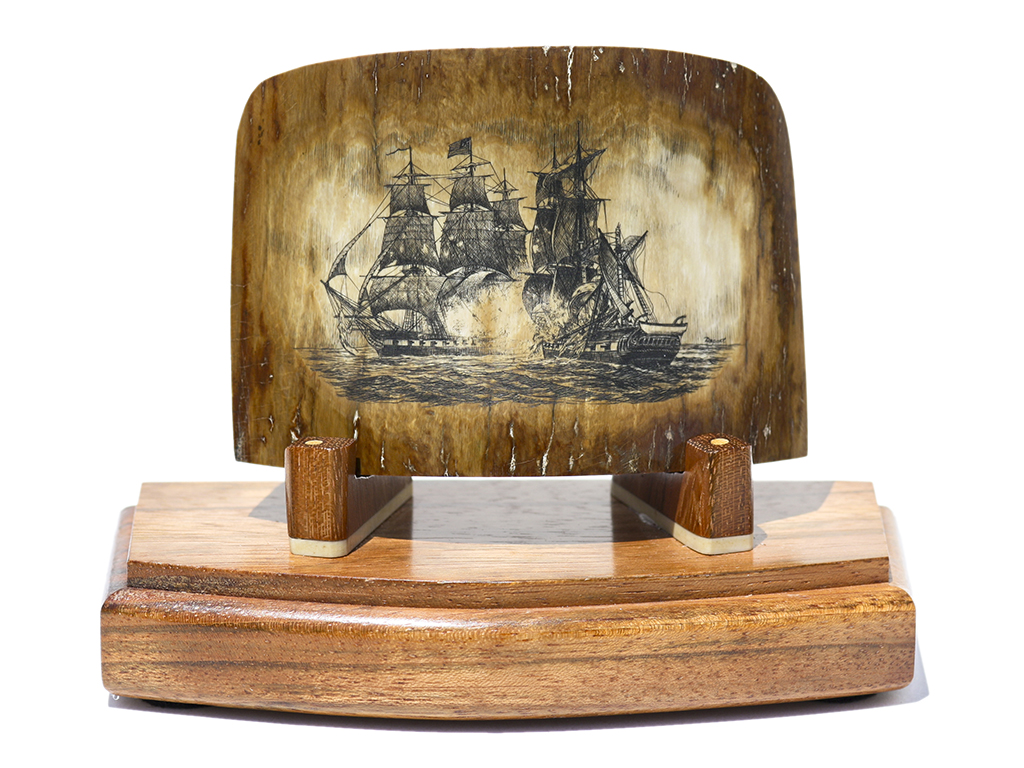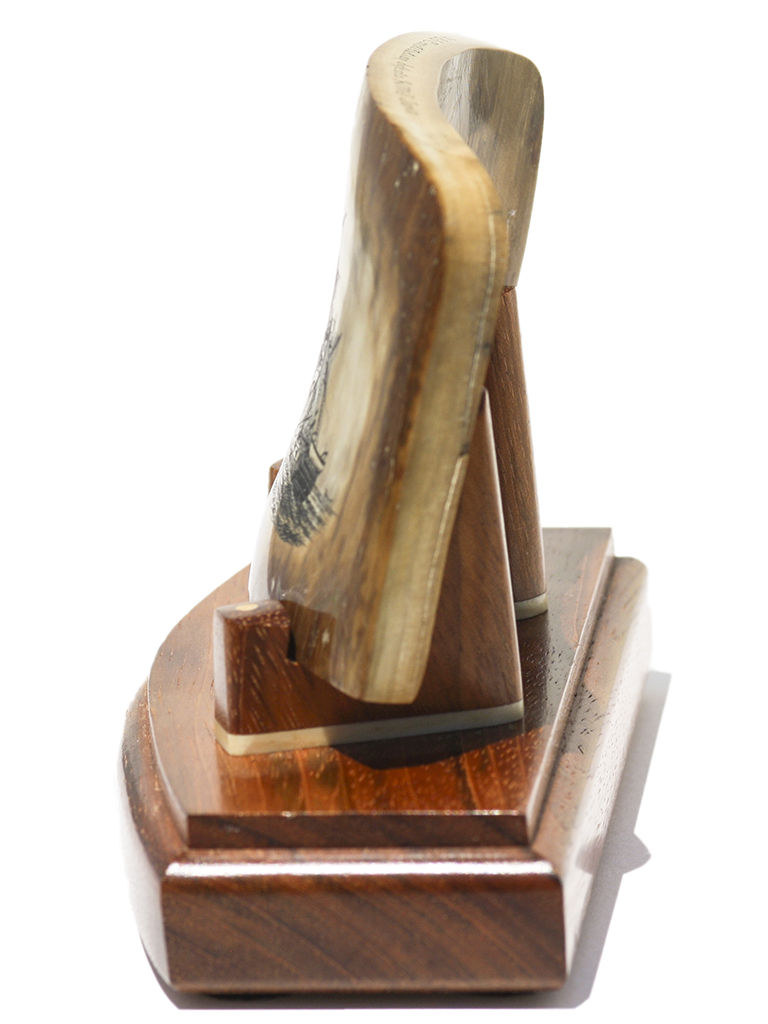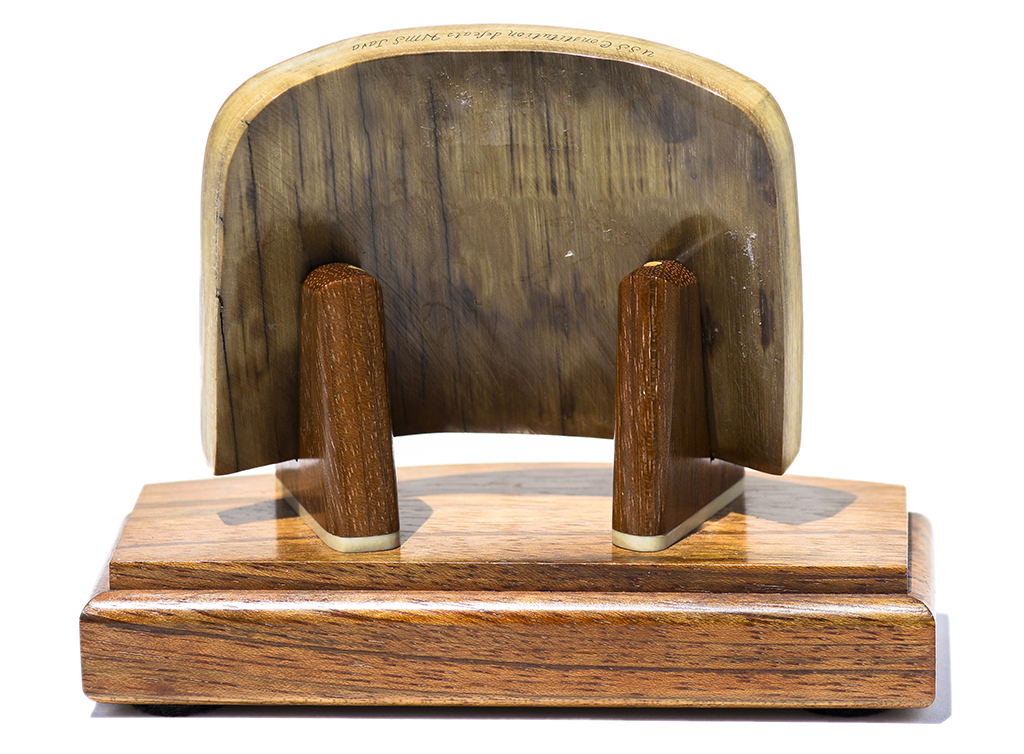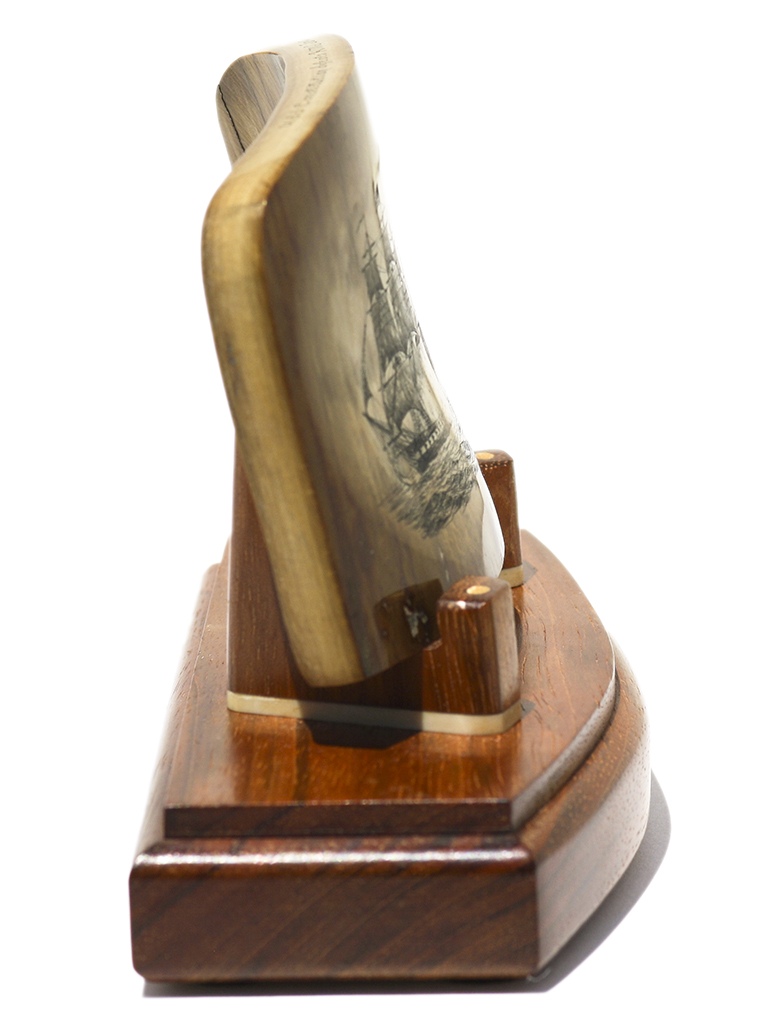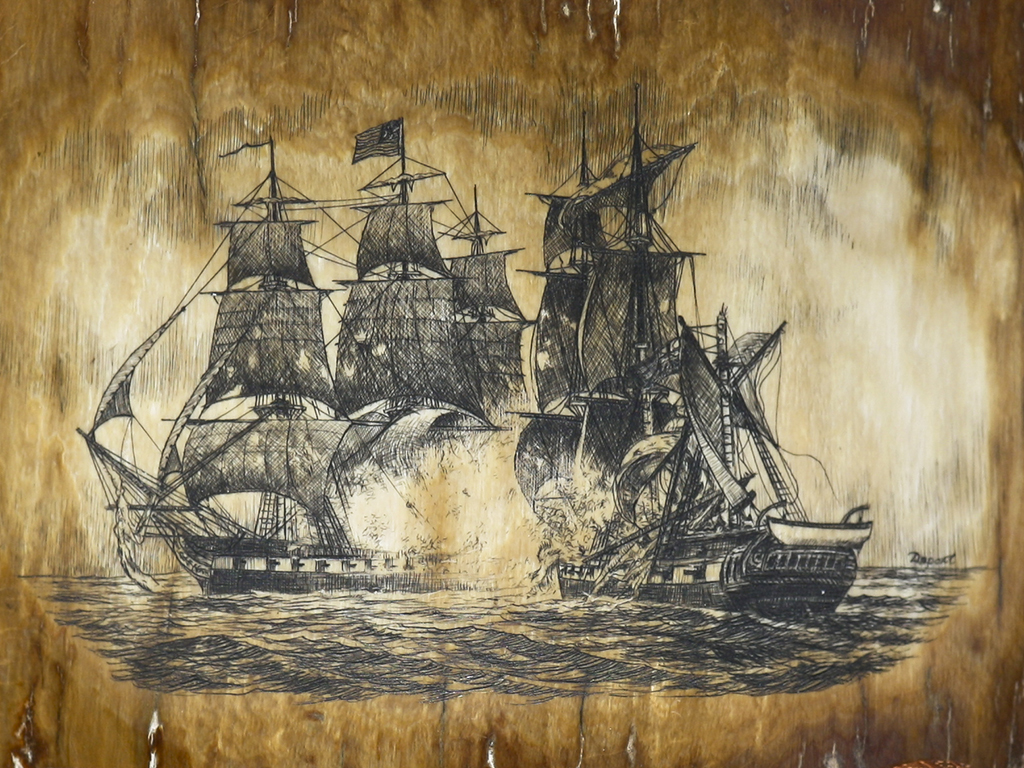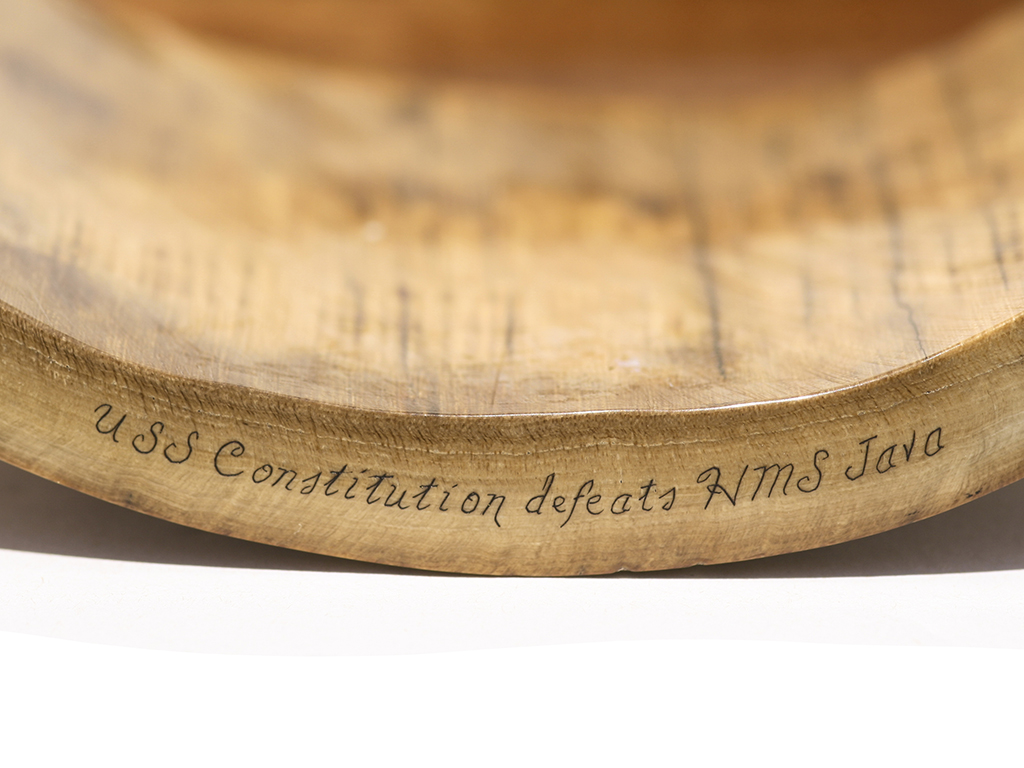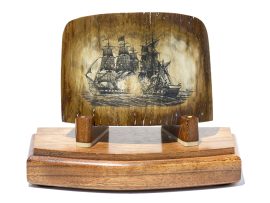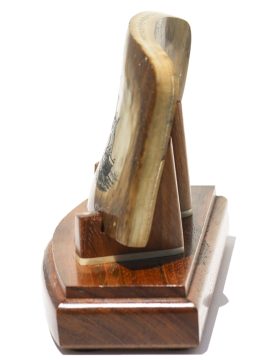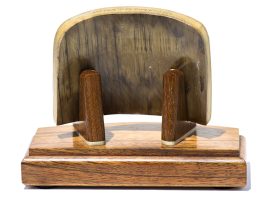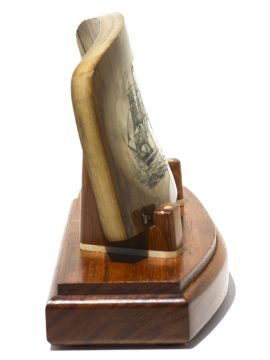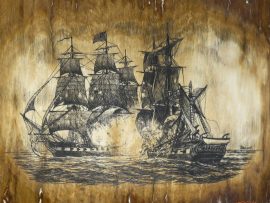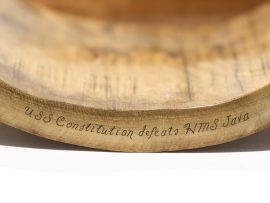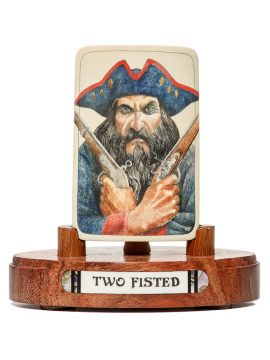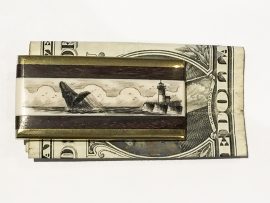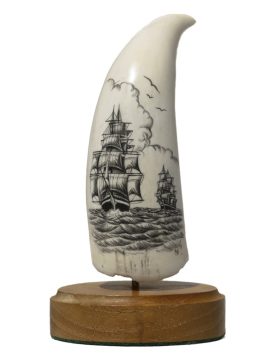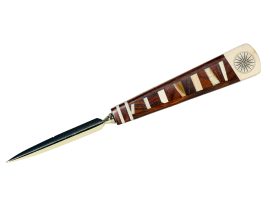Constitution vs. Java
$1,200.00
“Constitution vs. Java” black and white scrimshaw on ancient mammoth ivory bark by Gerry Dupont.
On December 29, 1812, while cruising off the coast of Brazil, USS Constitution’s masthead lookout sighted two ships on the horizon. Constitution, under the command of Commodore William Bainbridge, stood toward them, and the larger of the two, HMS Java, tacked toward the Americans.
Java, a 38-gun frigate (but mounting 47) commanded by Captain Henry Lambert, maneuvered to close with Constitution. The Americans opened fire as the range decreased, but the gun crews had difficulty hitting their target. Soon, Java ranged alongside Constitution and the battle commenced. As the two ships maneuvered to rake each other, Java suddenly turned under the American’s stern and fired. British shot smashed Constitution’s wheel and wounded or killed the four quartermasters manning it. The same broadside shattered a railing surrounding the after hatchway, embedding a shard of copper in Bainbridge’s thigh. Despite his wound, Bainbridge rallied his crew. To regain control of the ship, crew members were sent to the berth deck to steer the ship using the tiller directly connected to the rudder. The heavy American shot, coupled with the defensive properties of Constitution’s thick hull, began to turn the tide of battle. Captain Lambert decided to board the American frigate, and aimed Java’s shattered bow at Constitution. As the two ships neared, American shot toppled Java’s foremast and the boarding attempt failed. Soon after, Lambert received a mortal wound in the chest.
The Americans fired several more broadsides and then stood off out of range to repair damaged rigging. On Java, the devastation was complete with her three masts and bowsprit damaged, and many of her guns inoperable. An hour later, Constitution swept back and took up a raking position off Java’s bow. First Lieutenant Henry Ducie Chads surrendered the ship for Constitution’s second victory of the War of 1812.
After removing the British prisoners, Bainbridge determined that he could not tow Java to an American port. A demolition party lit fires in Java’s hold, causing the magazine to explode. Although Constitution suffered damage to her rig and hull, the ship made Boston on February 15, 1813. News of the victory had arrived six days before, and the city was ready to welcome its heroes. When the news reached England, the British Admiralty took steps to ensure that no more of their frigates would fall victim to the Americans. In July 1813 they issued orders forbidding their captains from engaging American frigates one on one.
In stock

